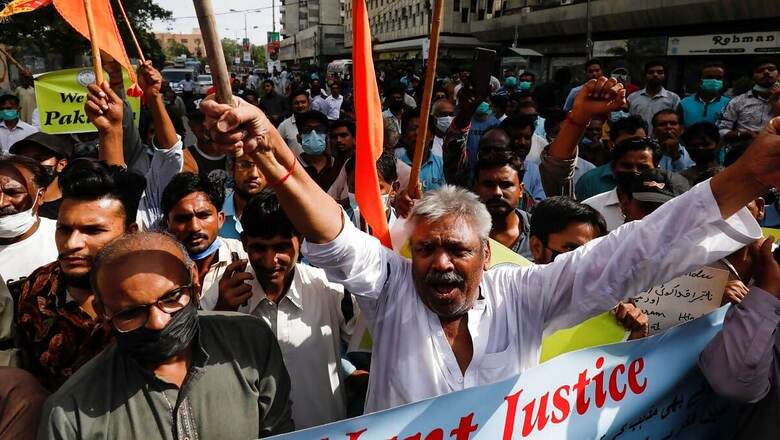
views
Pakistan’s Supreme Court has defended its top judge after a ruling he issued related to blasphemy that sparked an online backlash and led to thinly veiled death threats.
The campaign targeting Supreme Court Chief Justice Qazi Faez Isa began after he ordered the release of a man from the Ahmadi religious sect, considered heretical by hardline Muslim scholars.
The man had been accused of disseminating a forbidden Ahmadi text, which firebrand clerics consider tantamount to blasphemy –- a hot-button issue in Muslim-majority Pakistan where even unproven allegations of offending Islam have sparked violence.
The Supreme Court issued a statement on Thursday evening defending the ruling, denying that it went against the Islamic constitution.
“This impression is absolutely wrong,” it said. “The organised campaign against judiciary and judges is unfortunate.”
Isa’s ruling first went unnoticed two weeks ago, before it was highlighted by social media accounts linked to the Tehreek-e-Labbaik Pakistan party behind violent anti-blasphemy protests.
The Pakistani chapter of the Taliban militant group — known as Tehreek-e-Taliban Pakistan (TTP) — called Isa “an enemy of Islam” and “a damned man”.
Ahmadis have been discriminated against and persecuted for decades in Pakistan, because of their belief in a 19th century prophet after Muhammad.
The second amendment of Pakistan’s constitution, made in 1974, declares Ahmadis non-Muslims.
The law also prohibits them from professing to be Muslims or spreading their faith, and allows the death penalty for those found guilty of insulting Islam.
In his judgement, Isa ruled that according to the constitution, “every citizen shall have the right to profess, practice and propagate his religion”.
“Freedom of faith is one of the fundamental tenets of Islam. But sadly, in matters of religion, tempers flare up and the Qur’anic mandate is forsaken,” he added.
He also said the book allegedly disseminated by the accused had not been outlawed at the time of the alleged crime in 2019.
Cleric Fazlur Rehman, the influential leader of the conservative religious party Jamiat Ulema-e-Islam, said Isa’s reasoning was “false and based on bad intentions”.
In 2011, the governor of eastern Punjab province was killed by his own bodyguard after calling for reforms to the stringent blasphemy laws which Ahmadis frequently fall foul of.




















Comments
0 comment